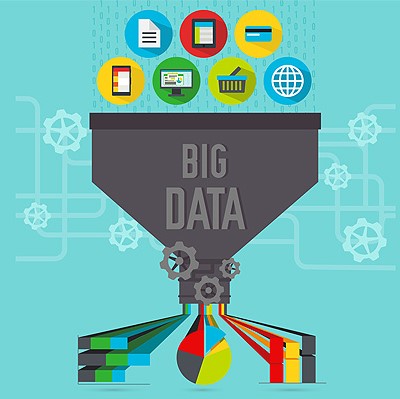Big data: what is it and how can it be useful?
Big Data has been around for the past decade, but with the rise of Internet of Things (IoT), connected devices and systems, there has been a huge increase in big data. This has often been overlooked outside of Big Data departments. However, with the rise of data privacy issues, a wider cross section of people are better understanding Big Data as enormous volumes of data that are held by large organisations and governments – that have a real impact on all of our lives.
This growing market is not slowing down – the Department for Digital, Culture, Media and Sport (DCMS) estimated that in 2016 the value of the UK data economy was between £61.3 billion and £73.3 billion. As the concept continues its momentum it is being used for worthy causes like:
- Savings to the NHS – a study carried out by London based start-up MastodonC examined UK prescription use for generic and non-generic alternatives for a specific class of drugs. Analysis of 35m lines of data identified potential savings to the NHS of more than £200m.
- Domestic abuse statistics tool – the Office for National Statistics (ONS) domestic abuse publication brings together data from a range of sources. In isolation, these data sources may not provide the context required to understand the national and local picture of domestic abuse. However, bringing this data together allows action to be taken and improve victim’s experiences. It also provides a better understanding of the criminal justice system’s response to offenders of abuse.
Grasping the data opportunity
The above examples show some real promise of how big data can be used, but there are certain challenges:
| Data centricity | Some organisations can fail in their big data projects because they have a limited understanding of big data or they don’t always adopt a data-centric approach which can constrain informed decision-making, and possibly an organisations growth and profitability. |
| Data growth issues | One of the challenges with big data is its colossal scale, which places stress on an organisation’s existing storage solutions. Many feel ill-equipped to cope with these issues. As data increases it becomes problematic to handle and store – many existing data storage systems may be able to handle large influxes of data, but there may be a requirement to replace your system – especially if you if you want to deliver better insights, increase your growth and profitability. |
| Quality of the data | When data is available, it may be in formats that are untidy and not fit for purpose. The pressure point for many organisations and many applications is getting correct and reliable data to feed into the software. |
| Integrating data from a variety of sources | Data in many organisations is extracted and manipulated from various sources e.g., social media pages, financial reports, e-mails, reports etc. Combining all this data can be a challenging task – organisations may not have a data-centric approach, the infrastructure or the skills to tackle data integration – which is very important if you want to make informed decisions. |
| Data skills | To work with big data tools and associated technologies, organisations need skilled data professionals. These include data scientists, data analysts and data engineers. In the UK workforce there is a lack of data skills – in May 2021, the DCMS predicted that there are potentially 178,000 to 234,000 data roles to be filled. |
| Securing data/Responsible data | Increased use of data needs to be used responsibly and ethically to avoid data breaches. Organisations don’t always put data security at the top of the list when they are designing solution architecture. |
The solution
The importance of big data doesn’t mean having lots of data equates to positive outcomes – it’s more important what you do with it. A report by the University of Brussels finds that successful businesses are faster adopters of big data when compared to their competitors.
The UK Trade & Investment report that UK data-driven firms are 40% more likely to report launching products and services ahead of their competitors than those who aren’t data-driven. There is also a strong association between online data use and a firm’s productivity and profitability.
The challenges are usually the same for all businesses, but the way we resolve them vary from SMEs to Enterprise companies. As skilled data professionals we can work collaboratively with you to address some of the challenges and increase your productivity and profitability by:
- Building your data and analytics strategy and help your organisation adopt a data-centric approach;
- Mapping your data flow and data sources from multiple locations, systems, owners and users;
- Managing very large data sets which includes data preparation, cleansing and transformation– making it for purpose;
- Helping you make intelligent, data-driven decisions by improving the quality of the data;
- Driving improved insights and outcomes for your organisation;
- Generating new ideas on how to put your data to work;
With big data comes many opportunities. Data continues to reshape every industry. There are few signs of this slowing down. The journey ahead will require a shift in approach. We can help you with this – for every industry, large or small.
Benefits of working with us:
- Skilled Professionals
- Cost Reductions
- Time Reductions
- Smarter decision making
- New product development and optimised offerings

